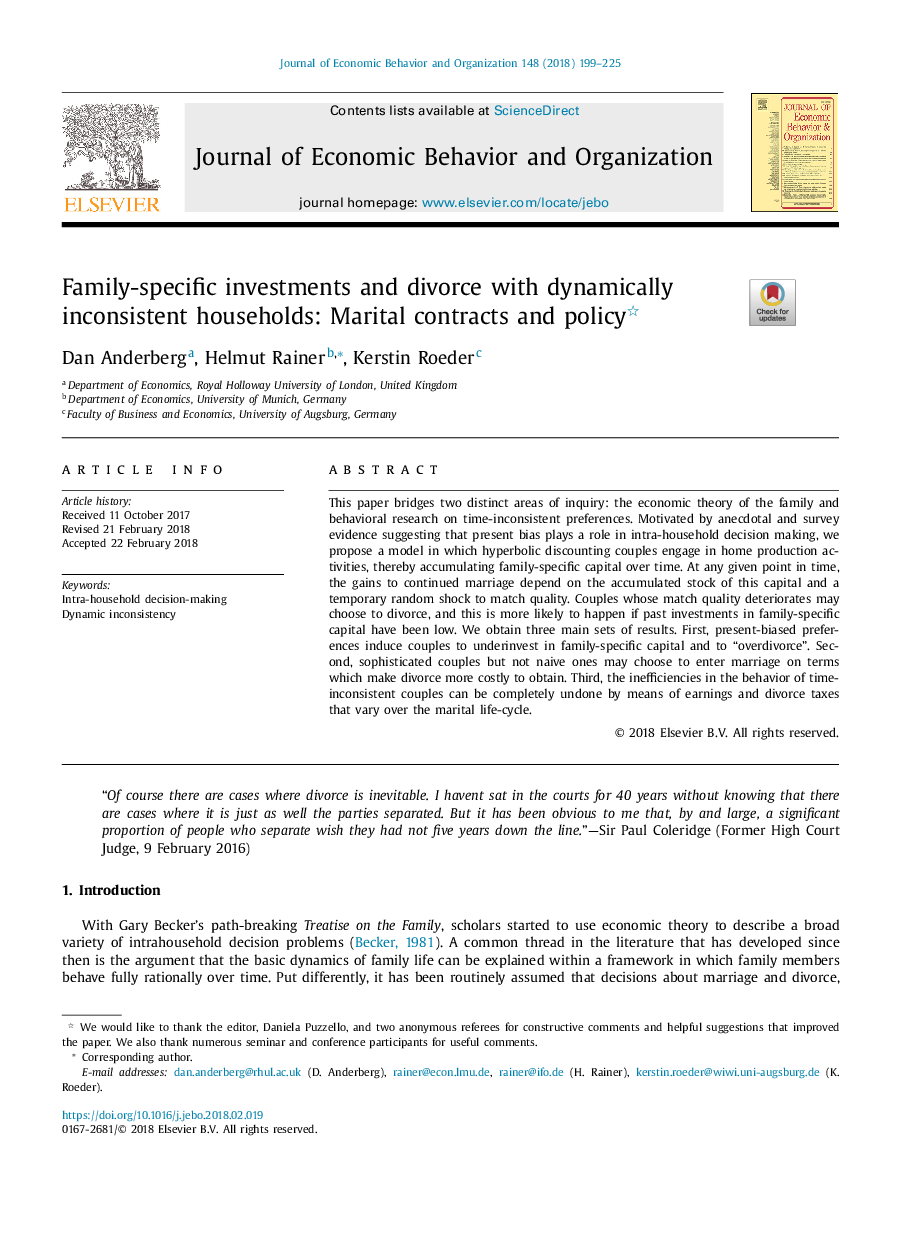| Article ID | Journal | Published Year | Pages | File Type |
|---|---|---|---|---|
| 7242622 | Journal of Economic Behavior & Organization | 2018 | 27 Pages |
Abstract
This paper bridges two distinct areas of inquiry: the economic theory of the family and behavioral research on time-inconsistent preferences. Motivated by anecdotal and survey evidence suggesting that present bias plays a role in intra-household decision making, we propose a model in which hyperbolic discounting couples engage in home production activities, thereby accumulating family-specific capital over time. At any given point in time, the gains to continued marriage depend on the accumulated stock of this capital and a temporary random shock to match quality. Couples whose match quality deteriorates may choose to divorce, and this is more likely to happen if past investments in family-specific capital have been low. We obtain three main sets of results. First, present-biased preferences induce couples to underinvest in family-specific capital and to “overdivorce”. Second, sophisticated couples but not naive ones may choose to enter marriage on terms which make divorce more costly to obtain. Third, the inefficiencies in the behavior of time-inconsistent couples can be completely undone by means of earnings and divorce taxes that vary over the marital life-cycle.
Keywords
Related Topics
Social Sciences and Humanities
Economics, Econometrics and Finance
Economics and Econometrics
Authors
Dan Anderberg, Helmut Rainer, Kerstin Roeder,
